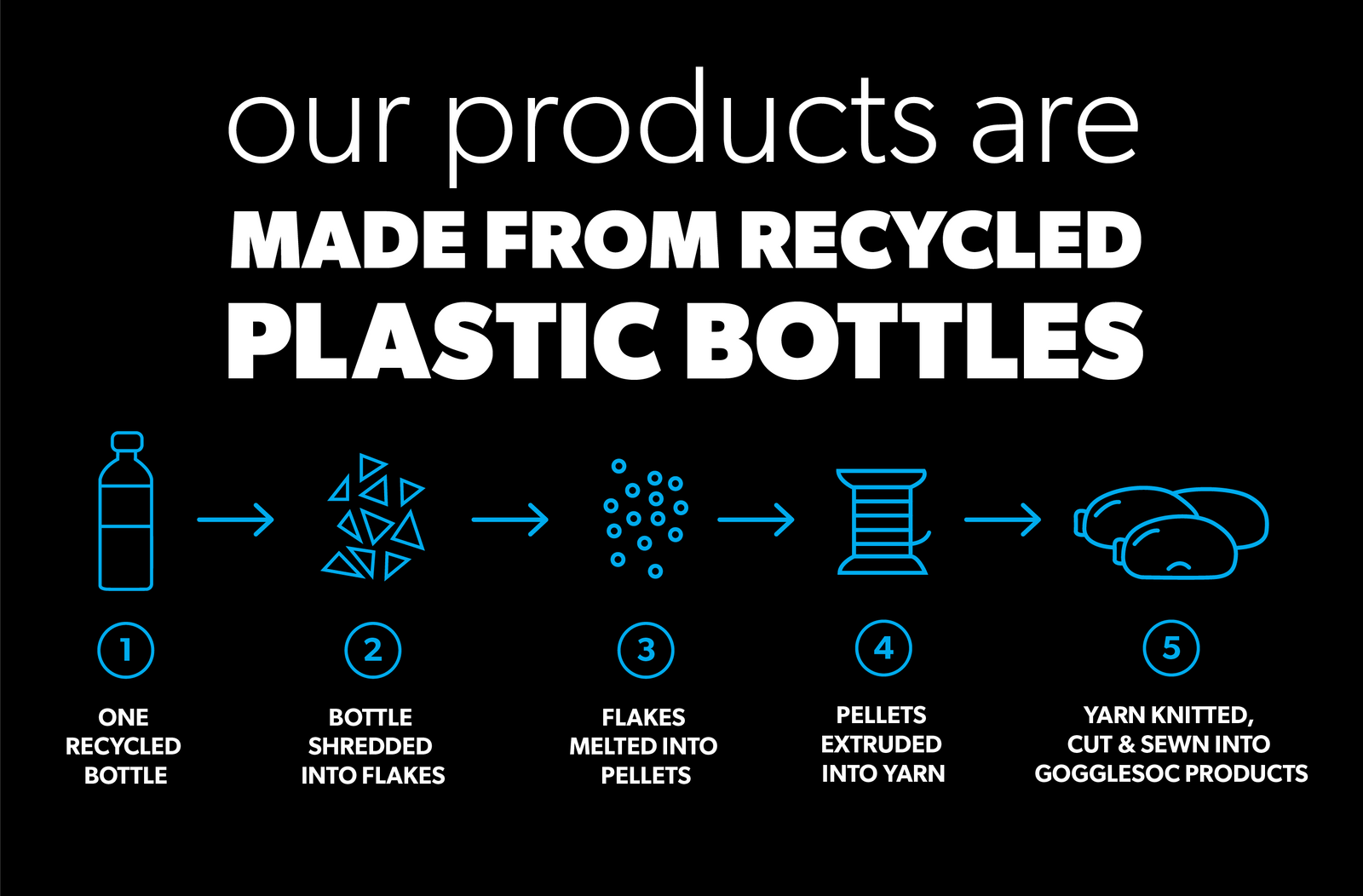In a world where environmental responsibility is paramount, sustainability has been a core value since day one. Our commitment to reducing waste and innovating eco-conscious solutions is at the heart of our journey. And today, we're super excited to share a significant milestone: repurposing over 1 million plastic bottles through our use of rPET fabric.
What is rPET?
rPET stands for 'recycled polyethylene terephthalate', a fancy name for a revolutionary fabric made from recycled plastic bottles. The process begins by collecting discarded plastic bottles. These bottles undergo a meticulous recycling process where they're cleaned, shredded, and transformed into tiny chips. These chips are then melted, spun into yarn, and woven into the durable, sustainable fabric that constitutes gogglesocs
Why rPET?
Our commitment to sustainability extends beyond just creating products which extend the lifestyle of your lenses. By utilizing rPET fabric, we're actively diverting plastic waste from landfills and oceans, giving it a new lease on life as functional, durable gogglesocs. Not only does this help reduce our ecological footprint, but it also supports the circular economy by closing the loop on plastic waste.
Transparency in Our Approach
While rPET fabric aligns with our sustainability goals, transparency is key. We acknowledge that while rPET offers numerous benefits, including reduced energy consumption and less reliance on virgin materials, it's essential to address both its advantages and limitations.
Pros:
- Reduces Environmental Impact: Using recycled materials minimizes the need for new resources, lessening the strain on the environment.
- Closes the Recycling Loop: Repurposing bottles into high-quality fabric exemplifies a circular economy model, reducing waste.
- Requires Less Energy to Produce: Studies show that recycled polyester fibre production also requires significantly less energy to produce; 79% fewer carbon emissions to manufacture rPET compared to virgin polyester.
Cons:
- Microplastics: Like other synthetic fabrics, rPET can shed microplastics when washed, contributing to microplastic pollution.
- Limited Availability: Sourcing adequate quantities of high-quality recycled materials can sometimes be challenging.
Always Looking To Do Better
At gogglesoc, our journey doesn't end at rPET. While we're immensely proud of repurposing 1 million bottles, we're always on the lookout for new, innovative materials and manufacturing methods that align with our values. Our commitment to sustainability means continuously exploring and embracing new solutions that minimize our environmental impact.
Want to learn more? Check out our Impact page.

